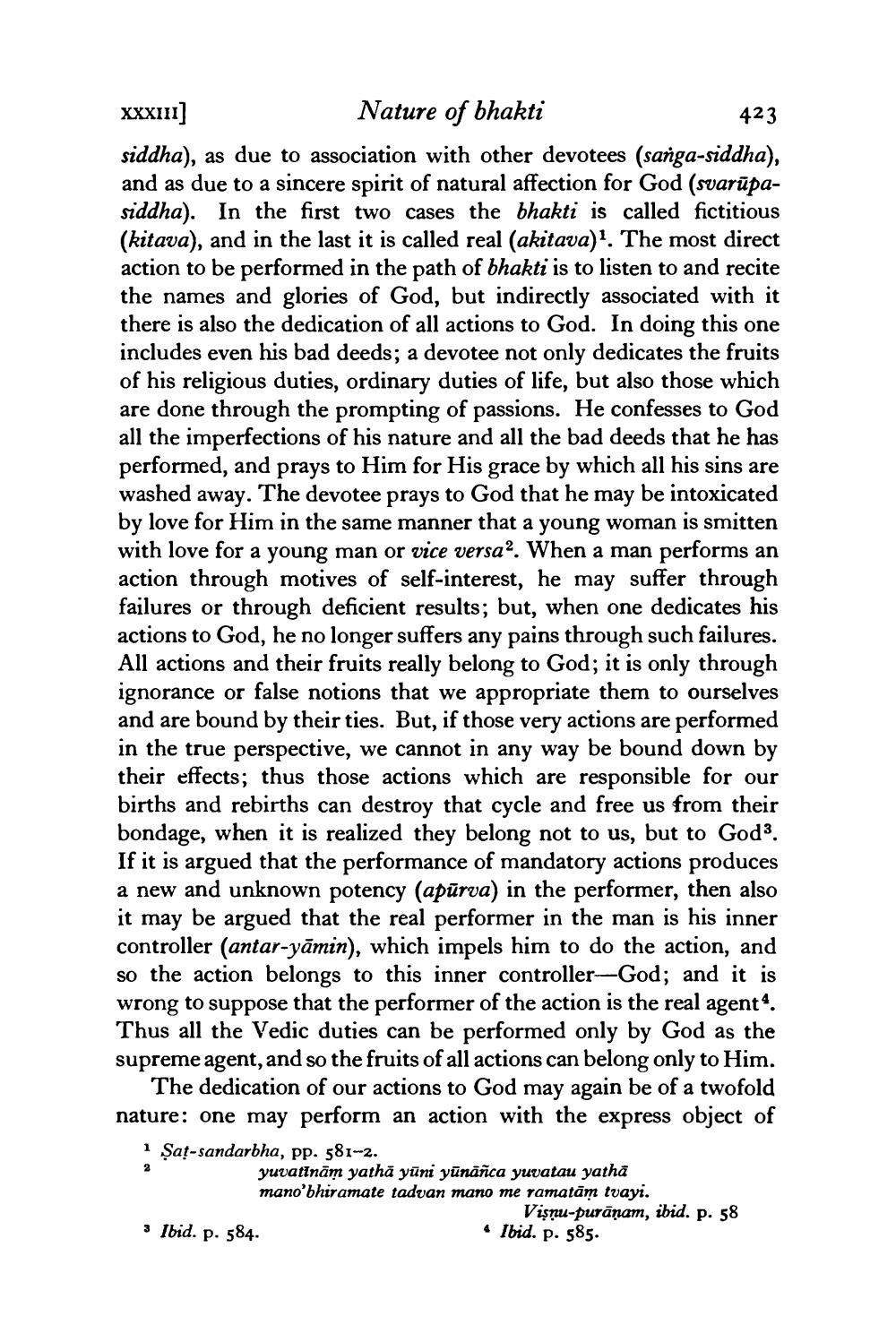________________
XXXIII] Nature of bhakti
423 siddha), as due to association with other devotees (sanga-siddha), and as due to a sincere spirit of natural affection for God (svarūpasiddha). In the first two cases the bhakti is called fictitious (kitava), and in the last it is called real (akitava)". The most direct action to be performed in the path of bhakti is to listen to and recite the names and glories of God, but indirectly associated with it there is also the dedication of all actions to God. In doing this one includes even his bad deeds; a devotee not only dedicates the fruits of his religious duties, ordinary duties of life, but also those which are done through the prompting of passions. He confesses to God all the imperfections of his nature and all the bad deeds that he has performed, and prays to Him for His grace by which all his sins are washed away. The devotee prays to God that he may be intoxicated by love for Him in the same manner that a young woman is smitten with love for a young man or vice versa?. When a man performs an action through motives of self-interest, he may suffer through failures or through deficient results; but, when one dedicates his actions to God, he no longer suffers any pains through such failures. All actions and their fruits really belong to God; it is only through ignorance or false notions that we appropriate them to ourselves and are bound by their ties. But, if those very actions are performed in the true perspective, we cannot in any way be bound down by their effects; thus those actions which are responsible for our births and rebirths can destroy that cycle and free us from their bondage, when it is realized they belong not to us, but to God3. If it is argued that the performance of mandatory actions produces a new and unknown potency (apūrva) in the performer, then also it may be argued that the real performer in the man is his inner controller (antar-yāmin), which impels him to do the action, and so the action belongs to this inner controller-God; and it is wrong to suppose that the performer of the action is the real agent4. Thus all the Vedic duties can be performed only by God as the supreme agent, and so the fruits of all actions can belong only to Him.
The dedication of our actions to God may again be of a twofold nature: one may perform an action with the express object of 1 Şat-sandarbha, pp. 581-2.
yuvatinām yatha yüni yūnañca yuvatau yatha mano'bhiramate tadvan mano me ramatām tvayi.
Vişnu-purānam, ibid. p. 58 3 Ibid. p. 584.
• Ibid. p. 585.




